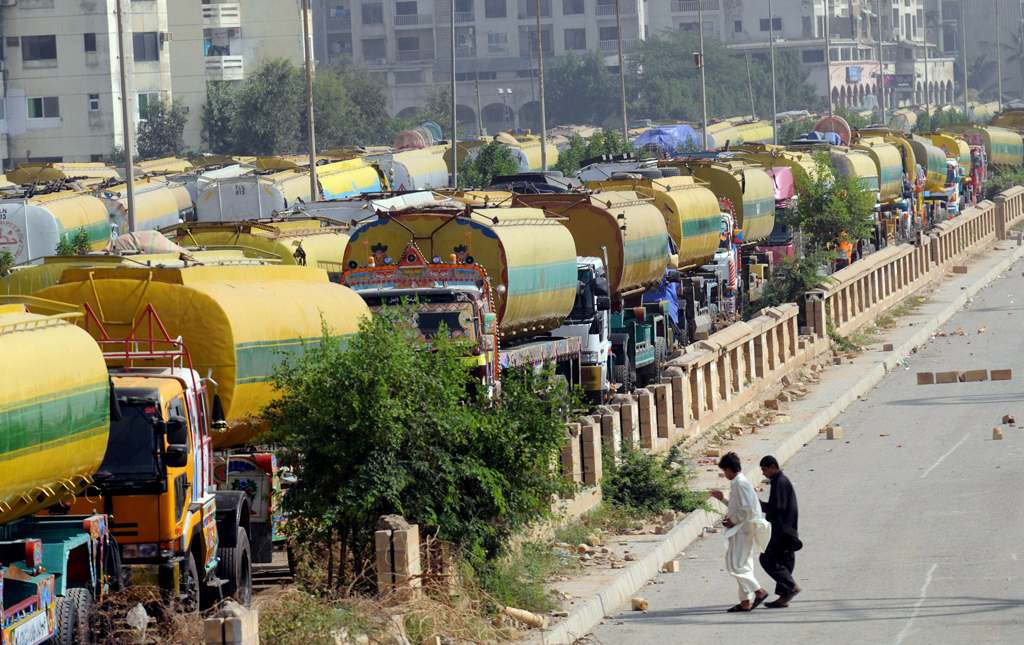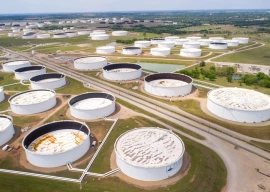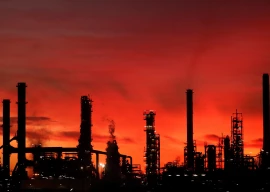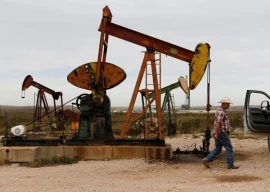
The federal government has invited oil transporters for talks in Islamabad on the second day of their strike on Friday, which has obstructed supplies of petroleum products from depots to fuel stations across the country.
The availability of petrol and diesel at filing stations remained largely unaffected on the first day of the strike on Thursday. If agreement is not reached in negotiations, the country may face fuel shortage from Friday or Saturday onwards.
“We will stage strike until our demands are completely accepted,” All Pakistan Oil Tankers Contractors Association (APOTCA) President Abidullah Afridi said while talking to The Express Tribune.
“Federal petroleum minister has invited us to Islamabad on Friday for talks,” he said. “If he accepts our demands, we will call off the strike, otherwise it will continue.”
Read: Fear of petrol shortage looms as oil tankers go on countrywide strike
All Pakistan Oil Tankers Owners Association spokesman Israr Ahmed said that officials of the Oil and Gas Regulatory Authority (Ogra), Federal Board of Revenue (FBR) and oil marketing companies would participate in the meeting. He hoped that they would address concerns of oil transporters.
“Oil supply to petrol pumps remained suspended on Thursday,” said Petroleum Dealers Association Chairman Malik Khuda Baksh. “If the suspension continues for the next two to three days, then the country will experience oil shortage because petroleum dealers maintain stocks for three days only.”
It takes around four to five days for tankers to transport oil to upcountry areas from Karachi, he elaborated.
Oil transporters have requested the government to allow supply of 50% of petrol (motor gasoline) and diesel from Karachi to the northern region through tankers while the remaining 50% can be transported through a pipeline laid by oil marketing companies and refineries from Karachi to Punjab.
He said that nearly 60% of diesel was transported to upcountry areas through the pipeline.
Hascol Petroleum former CEO Saleem Butt said that the pipeline had been upgraded around six months ago for transporting petrol, but due to bureaucratic hurdles, it could not be made functional until now.
“The government is unnecessarily delaying petrol transportation through the pipeline,” he said. “It has been ready for the last six months, however, the bureaucracy is playing its part as usual.”
Read more: New oil refining policy likely to attract $15b
If the strike continued for a few days, it would disrupt the oil supply chain, which would result in shortage of petroleum products all over the country, he said.
“The government is being blackmailed by the transport mafia and the only solution to it is to kick-start transportation through the upcountry pipeline,” he said.
Other demands of the transporters included reduction in taxes on transportation of oil and fixing the queue system at oil storage facilities, he said. “The government had promised to slash the tax rate for transporters from 3% to 2% in the budget (for FY22), however, the rate remained unchanged,” Afridi said the other day.
Moreover, there was a need to fix the queue system at oil storage facilities, he said. At present, the tankers belonging to the influential people were prioritised while others had to wait for long durations, he said.
Officials of oil marketing companies said recently that oil tankers would never become irrelevant in the oil supply chain.
Published in The Express Tribune, June 25th, 2021.
Like Business on Facebook, follow @TribuneBiz on Twitter to stay informed and join in the conversation.






















COMMENTS (1)
Comments are moderated and generally will be posted if they are on-topic and not abusive.
For more information, please see our Comments FAQ